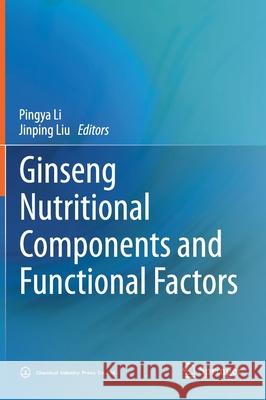Ginseng Nutritional Components and Functional Factors » książka
topmenu
Ginseng Nutritional Components and Functional Factors
ISBN-13: 9789811546877 / Angielski / Twarda / 2020 / 197 str.
Ginseng Nutritional Components and Functional Factors
ISBN-13: 9789811546877 / Angielski / Twarda / 2020 / 197 str.
cena 684,33
(netto: 651,74 VAT: 5%)
Najniższa cena z 30 dni: 655,41
(netto: 651,74 VAT: 5%)
Najniższa cena z 30 dni: 655,41
Termin realizacji zamówienia:
ok. 16-18 dni roboczych.
ok. 16-18 dni roboczych.
Darmowa dostawa!
Kategorie BISAC:
Wydawca:
Springer
Język:
Angielski
ISBN-13:
9789811546877
Rok wydania:
2020
Wydanie:
2020
Ilość stron:
197
Waga:
0.58 kg
Wymiary:
25.4 x 17.78 x 1.27
Oprawa:
Twarda
Wolumenów:
01
Dodatkowe informacje:
Wydanie ilustrowane











